As the job market continues to grow and new opportunities arise, professionals are exploring different ways to advance their careers. For many, that means switching to a new career path or potential employment. For others, it means retooling their current skills and knowledge to enter a new field. An accountant resume may be the perfect first step for those looking to break into the financial advisor role. The responsibilities of a financial advisor vary from person to person and company to company, but most advisors offer similar services as consultants for clients interested in growing their wealth. A financial advisor resume will help you stand out from other candidates when applying for this entry-level position or another job within the finance field. In addition, our expert-written resume examples and tips will help you ace your following interview. Learn how to tailor your resume by focusing on relevant skills, experiences, and education to impress hiring managers with your value proposition!
Financial Advisor Resume Example

Download This Financial Advisor Resume as PDF
Tax Advisor Resume Example
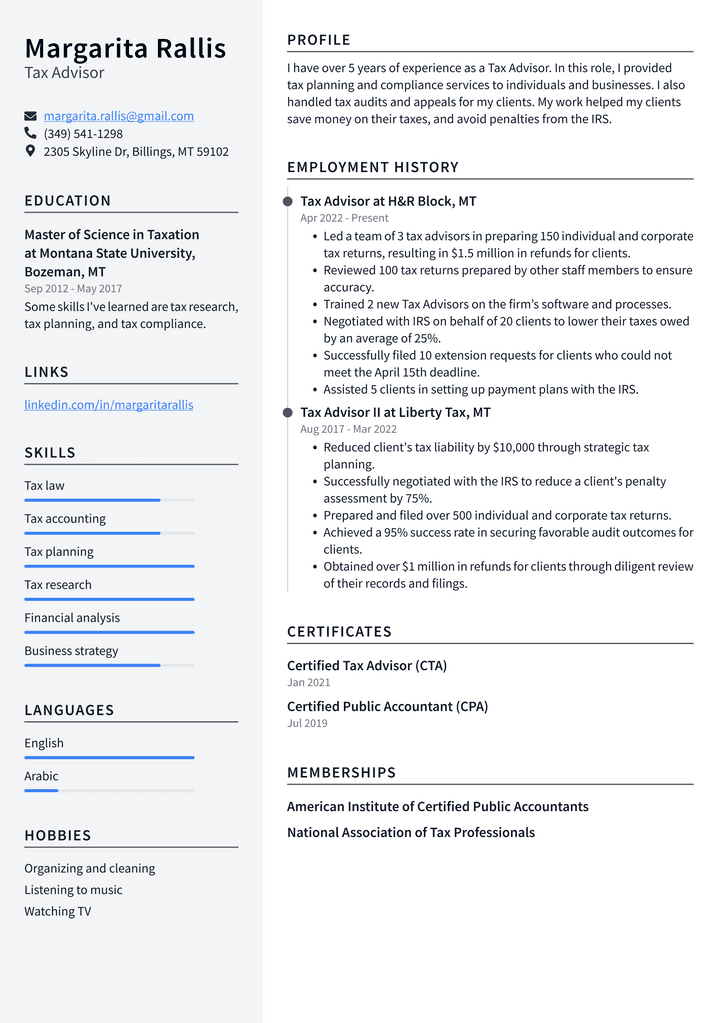
Download This Tax Advisor Resume as PDF
Wealth Manager Resume Example
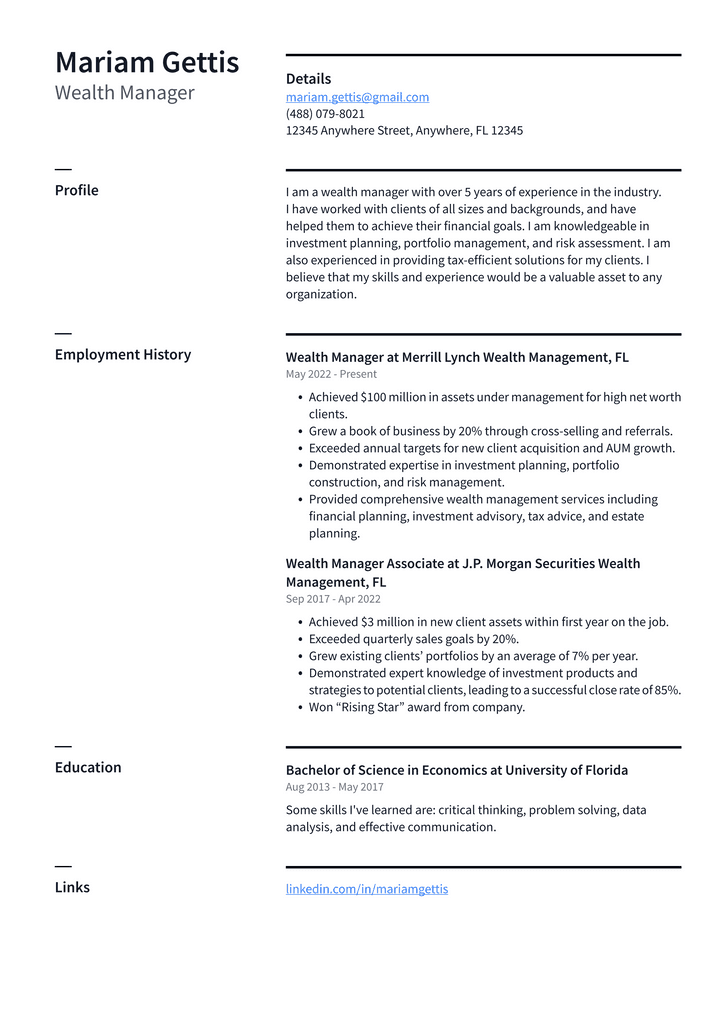
Download This Wealth Manager Resume as PDF
Estate Planner Resume Example
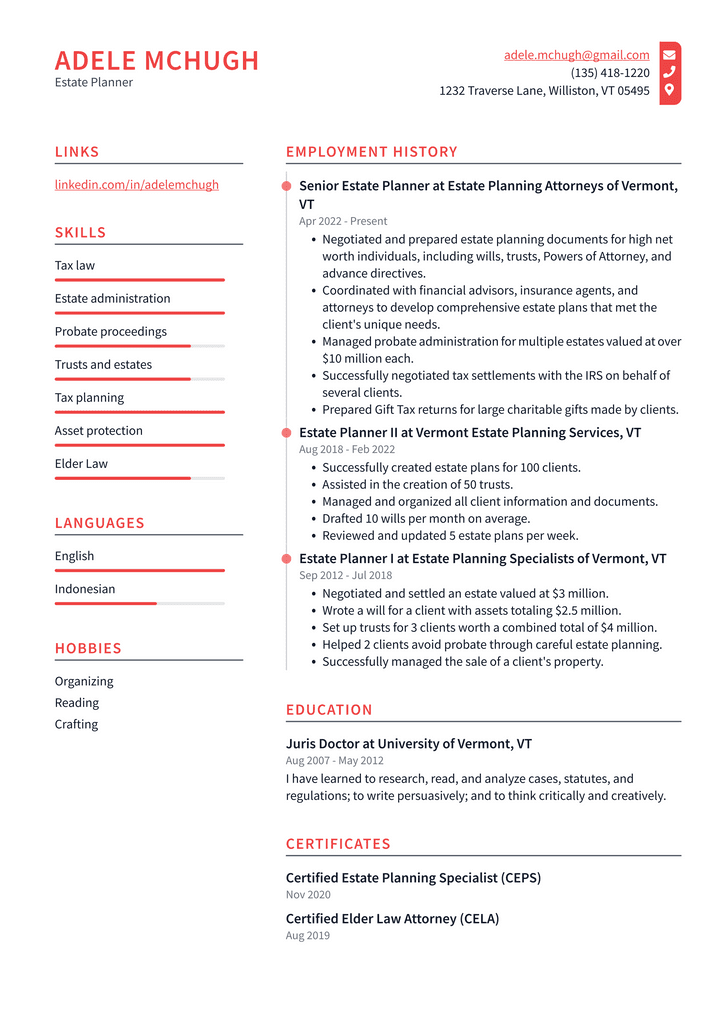
Download This Estate Planner Resume as PDF
Financial Planner Resume Example
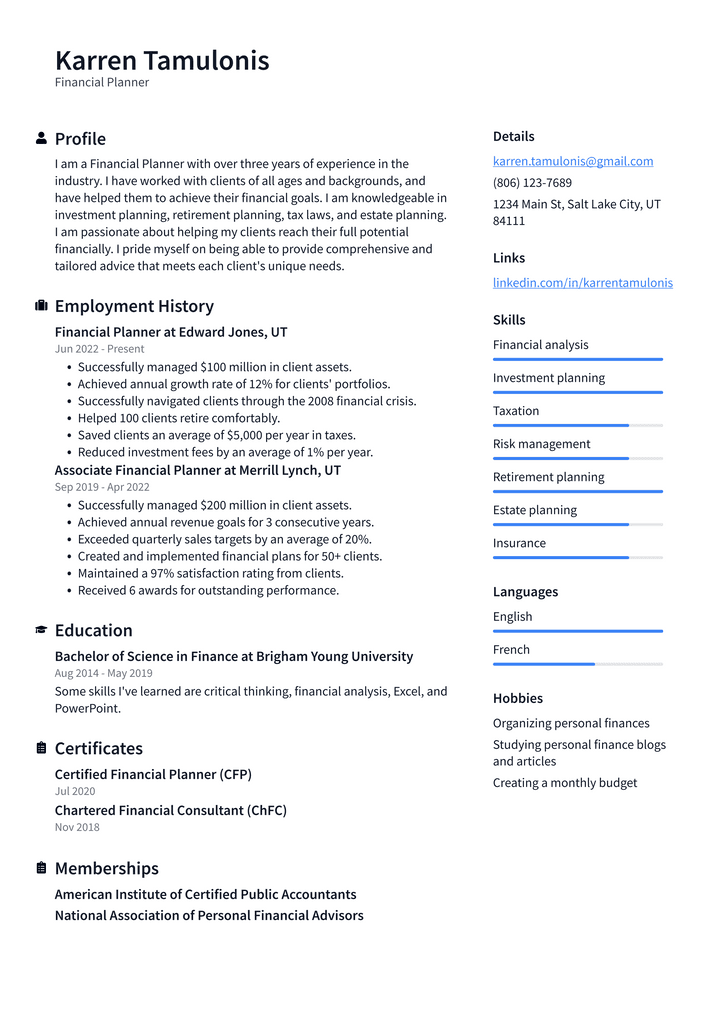
Download This Financial Planner Resume as PDF
Retirement Planner Resume Example
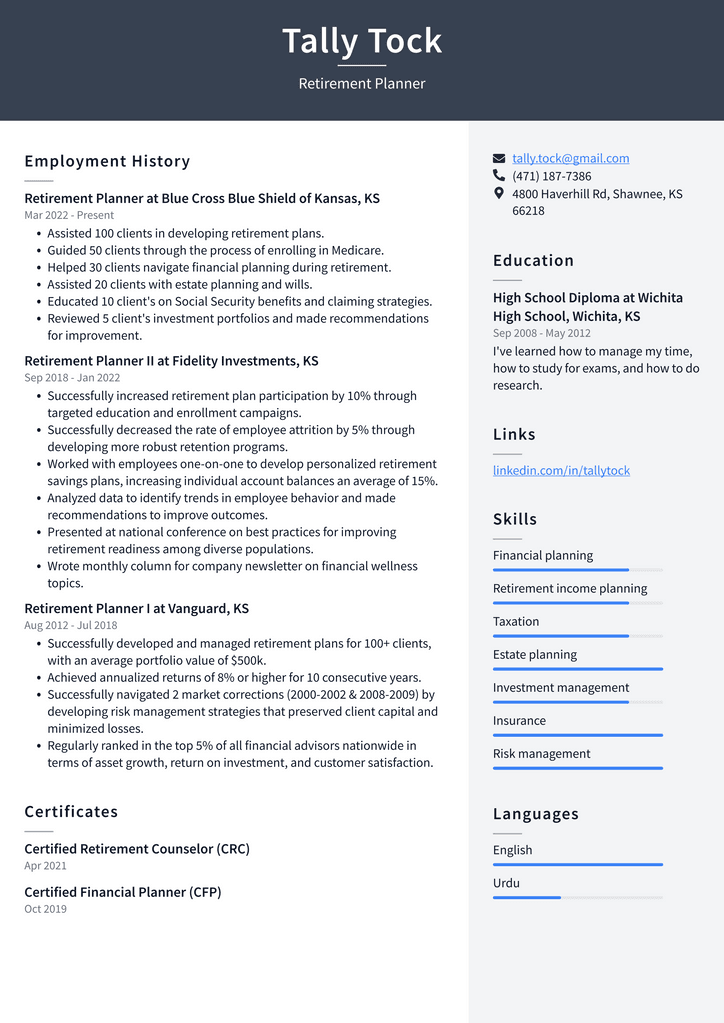
Download This Retirement Planner Resume as PDF
Investment Advisor Resume Example
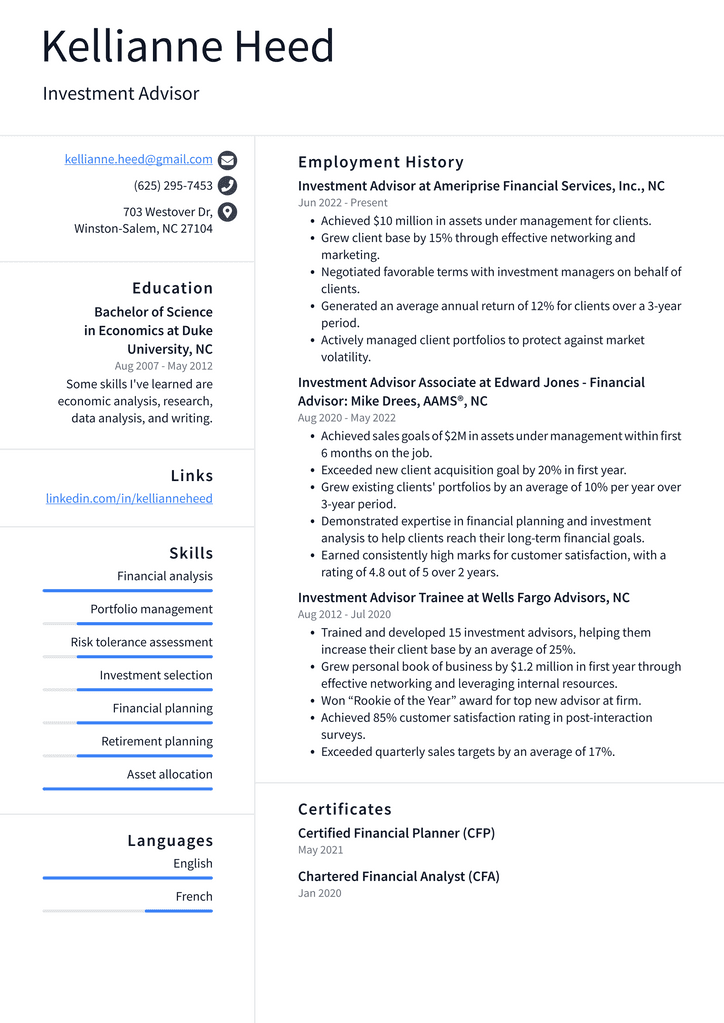
Download This Investment Advisor Resume as PDF
The Importance of a Solid Resume
A financial advisor resume is the first impression a hiring manager has of you as a professional. It’s important to highlight your most vital skills and experiences early to leave a lasting impression that you are the right candidate for the job. That means your resume must be error-free, informative, and easy to read. If a hiring manager spots even the slightest mistake on your financial advisor resumes, like a misspelled word or an incorrect date, you could lose out on the job opportunity. Resumes are one of the essential job-hunting tools, yet many job-seekers put almost no effort into them. What is the point of applying for a job if no one will ever read your resume? A good summary is key to getting an interview. A lousy resume will result in no response whatsoever.
How to Find the Right Financial Advisor Job for You
Choosing a financial advisor job can be daunting for those who have never worked in the industry before. To make the process easier, we recommend researching the average salaries of different financial advisor positions to get an idea of what you can expect to make in the field. Another essential factor to consider is the clients you will advise. Will you be working with individuals or small businesses? Are you interested in helping clients with personal or business finances? These are all questions you should ask yourself when exploring financial advisor jobs. Once you understand the essential job duties and types of clients you’ll be helping, you can start thinking about what skills and experience you bring to the table. For example, if you’ve worked in customer service, you might have the communication skills necessary for client relations.
Financial Advisor Resume Basics
- Your name and contact information go at the top of your financial advisor resume. Your name is essential, but don’t forget to include your contact information.
- Education: List your degree(s) and any principal (s) if relevant. If you have relevant certification, that can also be mentioned.
- Experience: This section of your financial advisor resume should include your work experience. Include both your job title and the companies you worked for.
- Skills: This is where you can get creative and showcase your personality. Some skills are pretty standard, but some are a little more obscure. If you have any unique skills, it’s a good idea to include them on your financial advisor resume.
Key Words and Phrases to Include on Your Resume
In addition to highlighting your most vital skills and experience, including the right keywords and phrases on a financial advisor resume can significantly impact your chances of being invited to a job interview. Here are some keywords and phrases to consider including on your next resume:
- Estate planning
- Investment management
- Retirement planning
- Wealth management
- Portfolio management
- Financial planning
- Asset allocation
- Asset management
- Investment strategies
- Retirement planning strategies
- Wealth management strategies
- Portfolio management strategies
- Financial planning strategies
- Financial advisor
- Financial planning
- Financial advisor resume
- Financial advisor resume
These are just a few of the keywords and phrases you might want to consider when writing your resume. The more you know about the financial advisor job, the better you’ll be able to craft your resume to target the correct positions.
Key Words and Phrases to Avoid on Your Resume
While including relevant keywords and phrases is essential to writing a financial advisor’s resume, it’s also important to avoid any generic language that could exclude you from the job. For example, some words and phrases might not be appropriate for your resume:
- Investment
- Finance
- Banking
- Retirement
- Portfolio
- Financial
These words might be too generic, depending on the position for which you’re applying. If you’re not sure, it might be best to avoid them.
Summary
The financial advisor resume example is just one example of how you can format your resume when applying for a job in the financial services industry. While the above example is a good starting point, it’s important to remember that every resume should be tailored to the job you’re applying for. It would help if you were switching things up depending on what industry you’re using for and what position you’re applying for. You want to make sure that your resume is as compelling as possible. This means making sure that it is error-free and that you’re highlighting your most vital skills and experiences. Ensure you include keywords and phrases on your resume to help it stand out from other candidates.